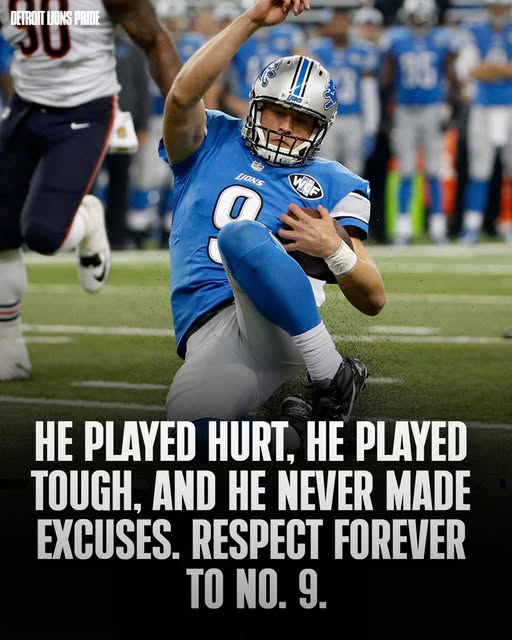Chris Spielman was the embodiment of toughness and leadership. As a middle linebacker in the late 1980s and early 1990s, he led by example, transforming every defense he anchored into a unit that reflected his unrelenting will and grit. Spielman’s story is not just that of an elite athlete—it’s a testament to the human spirit, a blueprint for how passion, perseverance, and an unwavering commitment to doing things the right way can define a legacy far beyond the field. When people speak about heart, about sacrifice, about playing the game with honor, they often end up talking about Chris Spielman.
Born in Canton, Ohio—the cradle of football—it seemed like destiny had a place for him in the game’s upper echelon. Growing up in a football-obsessed town mere miles from the Pro Football Hall of Fame, Spielman didn’t just inherit the region’s reverence for the game; he became one of its proudest symbols. At Massillon Washington High School, he became a legend, gracing the cover of a Wheaties box before even graduating, a rare feat for a high school athlete and one that signaled just how much potential he carried.
That promise followed him to Ohio State, where he didn’t just play football—he helped redefine what it meant to wear a Buckeye jersey. As a two-time All-American, he was the centerpiece of a ferocious defense, earning respect not through brash words or flashy theatrics but through relentless pursuit, bone-jarring hits, and a leadership style rooted in selflessness. He tackled with fury but never recklessness. He was intelligent, disciplined, and every bit the field general you’d expect from someone who viewed football as not just a sport, but a sacred trust.
Spielman didn’t need to scream or call attention to himself. His style of leadership was quiet, confident, and contagious. He was the kind of teammate who would finish every wind sprint, then jog back to encourage the last man in. The kind who studied film obsessively and was always in the right place at the right time—not because of luck, but because of preparation. He was the glue that held defenses together, the heartbeat of every team he played on, and the tone-setter whose toughness rubbed off on everyone around him.
That toughness only became more pronounced after he entered the NFL. Drafted by the Detroit Lions in 1988, he immediately stepped into the role he was born for: team leader. He would go on to become one of the most respected players in franchise history, a four-time Pro Bowler and the soul of a defense that constantly overachieved. Spielman didn’t have the gaudy numbers or flashy highlights of some of his contemporaries, but no one questioned his impact. He recorded over 1,000 tackles in his career, including a league-leading 195 in 1994, a testament to his durability, intelligence, and sheer will.
There was something visceral about the way he played. Every down was a war, and Spielman treated it as such. But it was never about ego or personal glory. For him, it was about responsibility—responsibility to his teammates, to the organization, to the fans, and to the game itself. He wore the Lions jersey like armor, understanding that toughness wasn’t just about hits or endurance—it was about accountability, about showing up and giving everything you had even when no one was watching. He played with injuries, pushed through pain, and never let anyone see him fold. He was the epitome of the “lunch-pail” player, a throwback in the best sense of the word.
But what truly made Chris Spielman legendary wasn’t just his performance between the white lines—it was the man he was off the field. When his wife Stefanie was diagnosed with breast cancer, Spielman did the unthinkable for a professional athlete in his prime: he stepped away from football to take care of her. He missed the 1998 season to be by her side, and in doing so, showed a different kind of courage, a different brand of toughness—one that transcended sports.
Their story became one of love, resilience, and advocacy. Together, Chris and Stefanie raised millions for breast cancer research and became symbols of hope for countless families. Through it all, Spielman never sought attention. He didn’t wear his pain as a badge. He simply did what he felt was right. That’s what made him so revered—not just his strength, but his humility. Not just his will to hit, but his willingness to hurt when others hurt.
When Stefanie passed away in 2009, the heartbreak was unimaginable. But Chris kept her mission alive, becoming even more active in cancer research fundraising and awareness. He didn’t just speak about it—he lived it. That same sense of duty that made him a football captain now made him a steward of something even bigger: hope.
In retirement, Spielman carried the same ethos into his broadcasting career. As a color commentator, he brought insight, intelligence, and passion to the booth. Fans respected his knowledge and authenticity. He wasn’t interested in theatrics or hot takes—he called it like he saw it, and his analysis always came from a place of deep understanding and reverence for the game. He had lived it, and so when he spoke, people listened.
Later, he took on a front office role with the Detroit Lions, becoming a special assistant to the owner and president. His presence signaled a return to the values that had once made the Lions so competitive—hard work, accountability, and integrity. It was more than just a PR move. It was a cultural shift. Bringing back Chris Spielman meant bringing back belief, the idea that a franchise could be built on character as much as talent.
There’s a reason why Spielman’s name still evokes emotion among fans, players, and coaches alike. He never won a Super Bowl. He doesn’t have a gold jacket from Canton. But in many ways, he doesn’t need either. His legacy is written in every hard-fought down, every teammate he inspired, and every life he touched off the field. He was the kind of player fathers pointed to when teaching their sons about what it means to compete. The kind of man who reminded everyone that leadership is not about words, but about action.
To speak about Chris Spielman is to speak about football in its purest form. The blood, the sweat, the sacrifice. The unwavering commitment to being better—not just for yourself, but for those around you. He wasn’t flashy. He wasn’t the fastest or the strongest. But no one outworked him. No one out-prepared him. And no one wore their heart on their sleeve more than he did.
Today, in a sports landscape often dominated by headlines, contracts, and branding, the story of Chris Spielman stands as a refreshing reminder of what really matters. Not stats. Not fame. But heart. Grit. Loyalty. He taught us that toughness isn’t about how hard you can hit—it’s about how often you show up, how much you care, and how far you’re willing to go for others. He didn’t just play football—he honored it.
Whether it was diving headfirst into a pile for a crucial stop on fourth down, holding his wife’s hand through chemotherapy, or rebuilding the culture of an NFL team from the ground up, Spielman always did one thing: he led by example. And in doing so, he became more than a linebacker. He became a symbol—for football, for family, and for every person who believes that doing the hard thing, the right way, is still the most powerful path to greatness.



